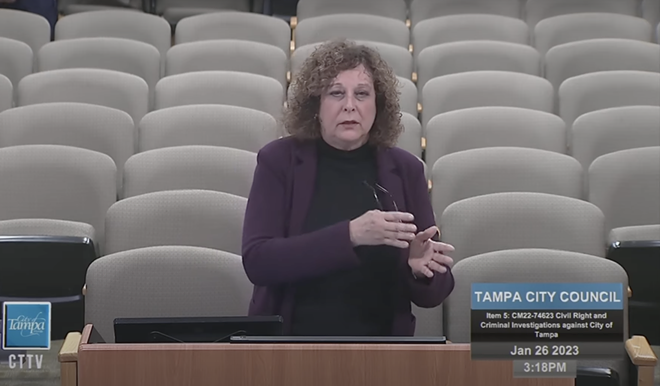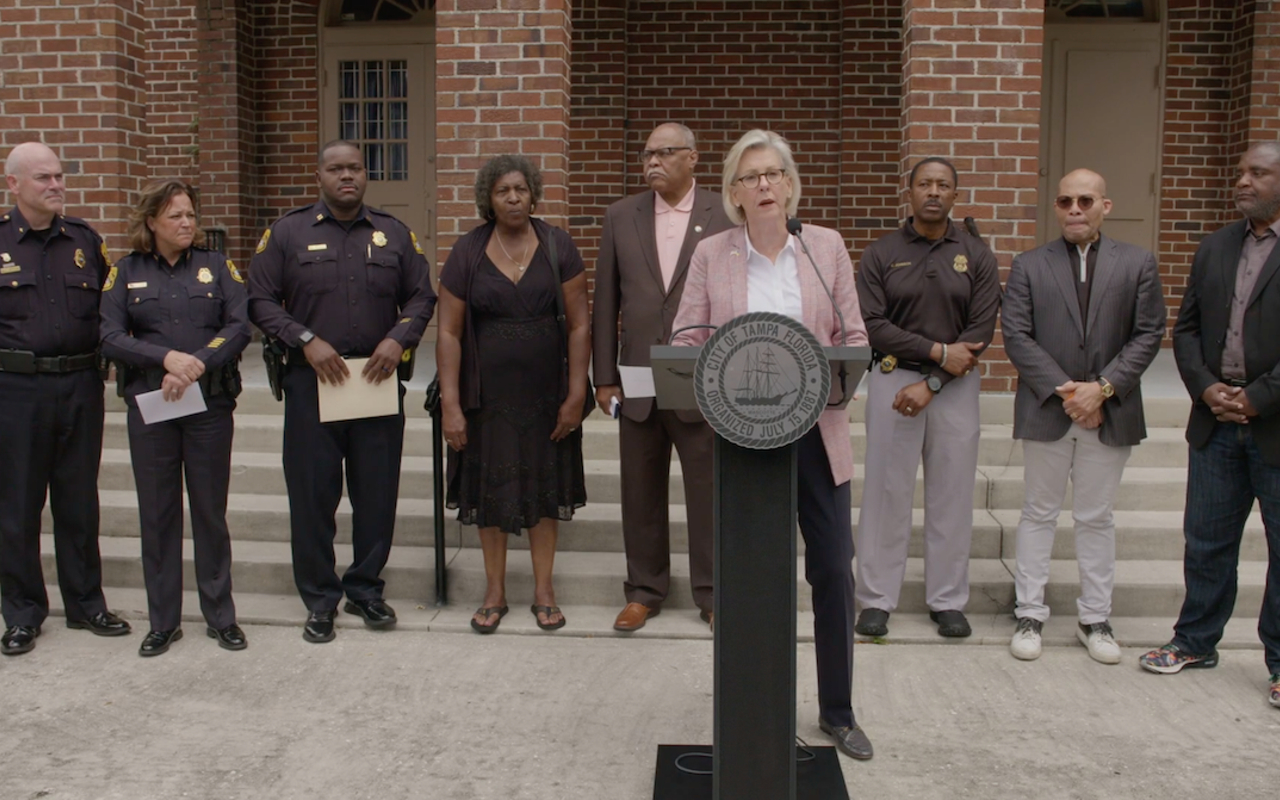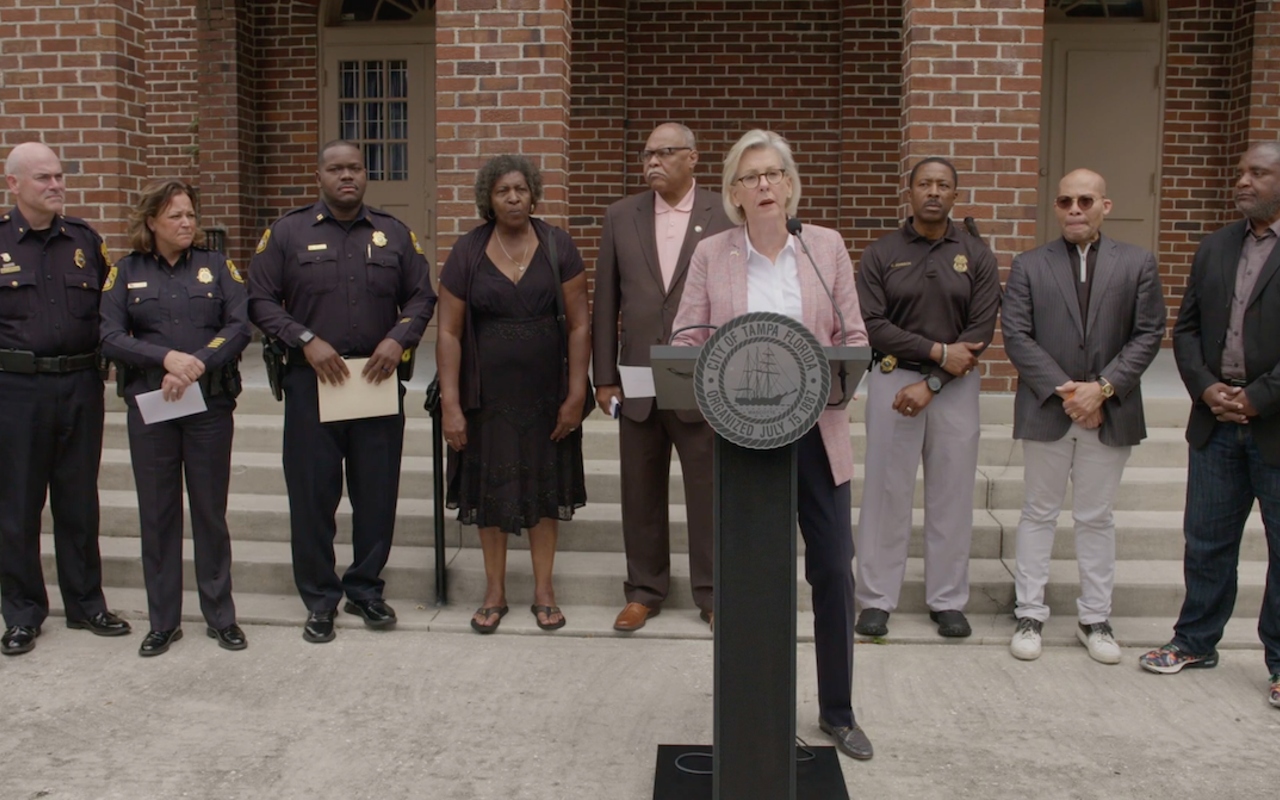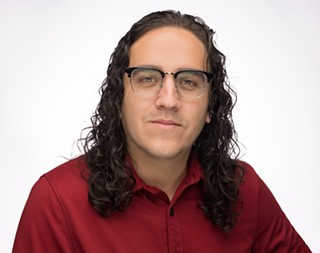City Attorney Andrea Zelman and her legal team are now tasked with creating a draft ordinance that would require Mayor Jane Castor, and any mayor that may come after her, to quickly notify council about major investigations into the city.
Council requested that Zelman return on March 2, with ordinance language for them to take a first vote on. Two separate votes would be required to make the ordinance law.
The move to create the new law came after Castor kept a U.S. Department of Justice’s (DOJ) investigation into Tampa Police Department’s racially-biased “crime free multi-housing” program a secret from council and from the public for five months. Castor oversaw the program when she was police chief, and defended it adamantly last year, saying it helped reduce crime.
Before the vote, Zelman, who works for Castor, warned council against pursuing an ordinance. She claimed that the mayor keeping a secret about the current DOJ investigation is not something that will happen often.
“I would caution counsel to not allow a single incident like that to trigger some ordinance that, you know, might not fit so many other instances,” Zelman said.
She mentioned that there are all sorts of investigations that take place within the city, including employment discrimination complaints, which have to be kept confidential.
Zelman said that civil rights investigations are “kind of a once in a decade occurrence.” However, Tampa has been the subject of two DOJ investigations in the past eight years. In 2015, the city was investigated for another racially-biased program, known as “biking while Black," which then police chief Castor also oversaw.
She referenced a Tampa Bay Times article from earlier this week, where Castor mentioned that she would like to improve on her communication skills, but Zelman still pushed against the legally-binding ordinance.
“The mayor has acknowledged, I believe very recently, that she wishes sometimes communication happened more openly and quickly, and this is an example,” Zelman said. “But I don't believe that an ordinance is the correct response to it.”
Zelman also added that common legal advice is not to talk about it when there’s an investigation underway. She also claimed that the city has not been updated at all about the ongoing investigation into the crime free multi-housing program.
“The community is under the impression that the administration rapidly releases, leaks or promotes information that is disparaging about council members, but then doesn't release information that doesn't look good for them or their allies,” Carlson said.
He pointed out that Castor didn’t make the investigation known until a reporter made a public records request related to the matter. Ten days later, on April 29 of last year, Castor held a press conference late on a Friday and defended the crime-free program as she announced it was under investigation.
“Be direct and honest about it,” Carlson said. “Call us first and then have a press conference right after, but be open and honest about it.”
Councilwoman Lynn Hurtak, who seconded Carlson’s motion, said that two federal investigations into the city should set enough of a precedent to make it law that council be notified quickly.
“There's nothing good about that,” Hurtak said. “And yeah, we should have found out about it at the time.”
All of the other council members who spoke during the portion of the meeting agreed, but still, Zelman pushed for a non-legally binding way to pursue what council wanted.
Council members suggested that any concerns that the city legal team has can be hashed out before the March 2 deadline for the ordinance draft.
Councilman Luis Viera told Zelman that those conversations could, “address some of those concerns that you've legitimately laid out.”




















